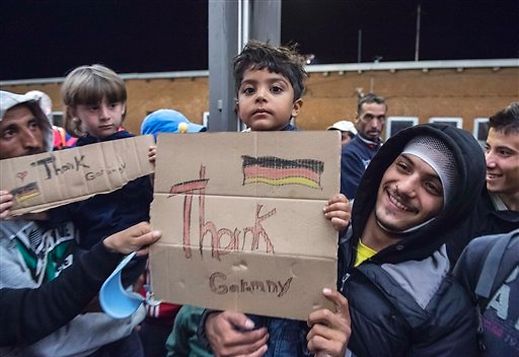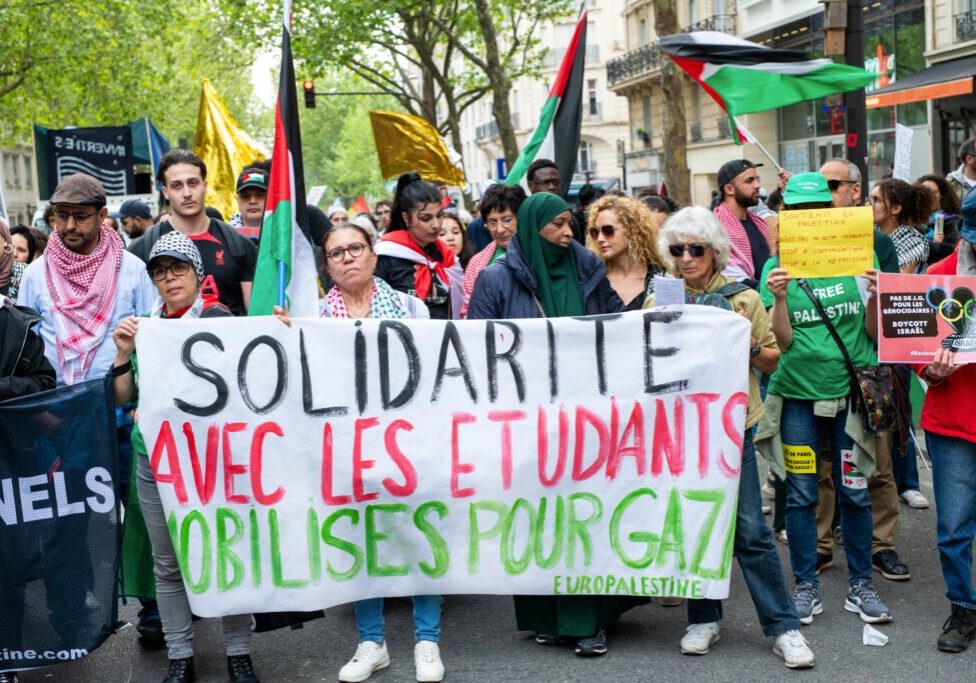Australia/Israel Review
Europa Europa: The Aid Business
Oct 30, 2015 | Douglas Davis

Douglas Davis
Oxfam, Christian Aid, Save the Children, War on Want… the clue, mostly, is in the names. These organisations, dedicated to relieving global poverty and human suffering, are sitting on the side of the angels and doing heaven’s work. Or are they?
The answer is not as simple as we might like it to be. These charities have grown from groups of enthusiastic amateurs into major multinationals with highly professional staffs and well-developed competitive instincts. Oxfam, which I served as press officer in the distant past, has always been the trend-setter. Today, it is the leader of the pack, with an annual turnover of well over half a billion dollars.
In the process of becoming global giants, the aid agencies have leveraged their success, skills and experience. They have developed alliances with the political and media classes, which have enabled them to extend their reach and amplify their influence. Governments peddling “soft power” find a natural fit with the agencies to deliver their ambitions; so, too, do media organisations, which gain privileged access to disaster areas by trumpeting the “aid story”.
With so much money washing around, it would be naïve to expect that the aid agencies do not, at some level, regard disasters, natural and man-made, as rich commercial opportunities.
It seems mean-minded to quibble with such cynicism in light of the good works they perform in some of the world’s bleakest trouble spots. But the reality does not always produce pristine outcomes.
Sometimes the unintended consequences of all that good work creates even greater catastrophe. Take the current refugee crisis that is driving desperate souls from their homes in Syria to safer, richer homes in Europe. In August, the Germans said they were expecting 450,000 refugees to cross their borders this year. Two months later, they revised the figure to 850,000. Now they are expecting the number to top 1.5 million.
And if you reckon, as German demographers do, that each migrant will be followed by up to eight family members, the total for this year alone could reach 7.5 million, which is almost 10% of Germany’s 80-million-strong population. That could be but a trickle compared to the human tsunami expected next year.
Germany has appealed to its European partners to shoulder some of the burden, but their pleas are mostly being met with the sound of Europe’s internal border crossings slamming shut, fences being erected, highways blockaded. Europe’s current disaster could take generations to repair, if it can be repaired at all.
The aid agencies have a case to answer for the chaos. Having witnessed the fate of Western aid workers who were captured in Syria by Islamic State, they judged the risk of operating inside the country to be unacceptably high. So they chose to set up aid stations in countries outside Syria’s borders. If the aid could not reach the needy, they figured, the needy would come to the aid. More than four million Syrians have proved them right, flooding into the inadequate refugee camps that were hastily thrown up on the safe side of Syria’s borders with Lebanon, Jordan and Turkey.
Things could have been different if the aid agencies had been prepared to work through local Syrian aid agencies, which, arguably, have a better grip on local problems. But the Western agencies were not prepared to hand over control to the locals. Some expressed fear of corruption, but the deeper fear may have been that their stocks would fall if they were not seen to be delivering the aid themselves.
Still the Western agencies clung on when the camps were overwhelmed, aid supplies were running down and there was no end in sight to the war in Syria. So the refugees turned to Europe, where Chancellor Angela Merkel opened her arms.
I do not doubt the sincerity of the major aid agencies in seeking to make the world a better place, even when their projects turn to toast. But I am baffled when, like other big-hitters in the humanitarian industry, they excuse regional savagery and use charitable donations to pursue obsessive, demonising campaigns against Israel.
What animates such hatred? I have never found a satisfactory answer. Perhaps they are reflecting the poisonous attitude of many of Europe’s foreign ministries. Or perhaps they are unable to comprehend the scale of Israel’s success, unique among the states that emerged from the flurry of post-war decolonisation.
The humanitarian agencies, too, were born in the Age of Decolonisation – perhaps in response to it – but they could never cajole, indulge and infantilise Israel with their largesse, even when Israel was at war with its neighbours and struggling with destitute refugees from Arab lands.
Many of those who are now attracted to the aid business might once have been drawn to the colonial service, perhaps as field officers helping the natives to overcome their primitive ways and escape their impoverished lives. That is not Israel.
Those erstwhile colonial officers are likely to be today’s aid workers, radical-chic graduates with the full repertoire of über-fashionable dogmas. That is the prism through which they view their mission, a prism which seems to demand a full-blooded condemnation of the only functioning democracy in the region.
Curious old world.
This article is featured in this month’s Australia/Israel Review, which can be downloaded as a free App: see here for more details.
Tags: Europe






